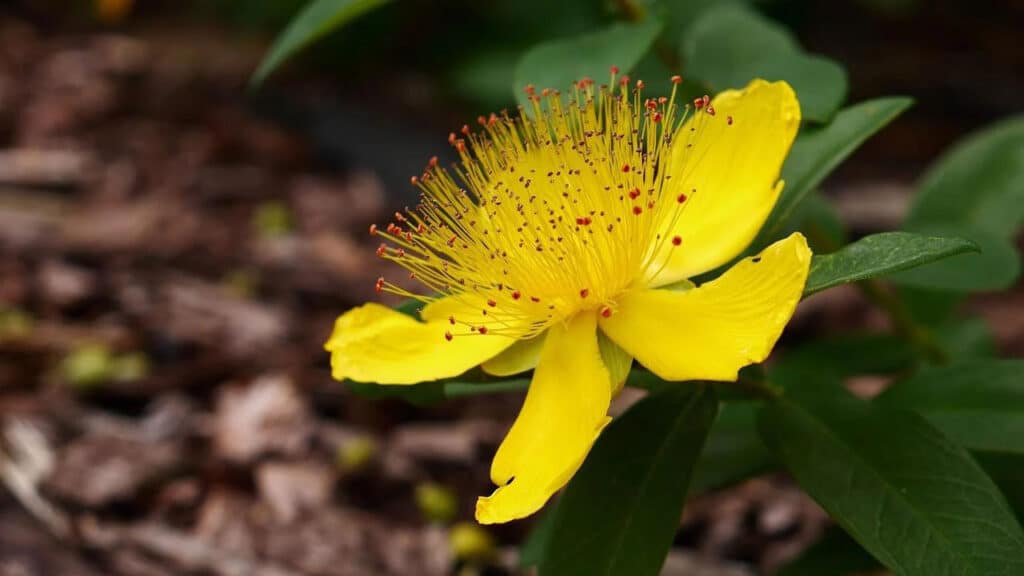If you’ve used pretty much any kind of prescription medication, you may have seen that little label “Do not take with St. John’s wort” and wondered what makes that particular supplement special. There are a million different supplements based on ancient herbal remedies, but they don’t all carry that notice.
That might be because St. John’s wort does have proven pharmacological properties. It contains compounds called hyperforin and hypericin that appear to have an antidepressant effect comparable to some prescribed treatments. Unfortunately, it also interacts with a wide range of other medications, potentially making them less effective or even dangerous. It can be powerful, and that means you need to be careful to use it in the right context.
St. John’s wort can be used to refer to any plant in the hypericaceae family, most of which contain similar compounds. The one used in traditional folk medicine, however, is the one with the highest levels of hypericin: hypericum perforatum (common or perforate St. John’s wort). It’s an herbaceous perennial native to Europe, with tall stems and yellow flowers. The flower traditionally blossoms near the feast day of St. John the Baptist, a possible origin of the name.
The use of St John’s wort as a folk remedy dates back centuries, if not millennia. A Roman man named Aulus Cornelius Celsus referred to it in a medical encyclopedia that he produced in around 30 AD. It’s been used not just as an anti-depressant but to try and alleviate symptoms of the menopause, treat somatic symptoms and even to speed up wound healing. Not all possible uses have as much evidentiary support as its use treating mild and moderate depression, however.
Today, you can purchase St. John’s wort as a tablet or capsule, or in liquid form. It can even be used to make a tea. As a supplement, the FDA considers it food rather than medicine, which means its production and sale is not subject to the same degree of regulation. An average course of St. John’s wort takes around 12 weeks.
Like any supplement, St John’s wort can have side effects, including nausea, dry mouth, dizziness and photosensitivity (sensitivity to light). That’s on top of impacting prescribed drugs. It can also be a particularly safe and effective supplement, however, so discuss it with your doctor if you think it might work for you.




